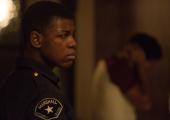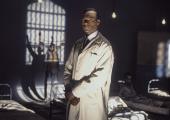Black Panther review - more meh than marvellous

The Marvel movie made by black talent takes itself too seriously
Black Panther arrives with all the critics displaying superhero-sized goodwill for its very existence. It’s a big budget mainstream Marvel movie that not only features a nearly all-black cast, but it also has an African-American writer director (Ryan Coogler) and co-screenwriter (Joe Robert Cole).









